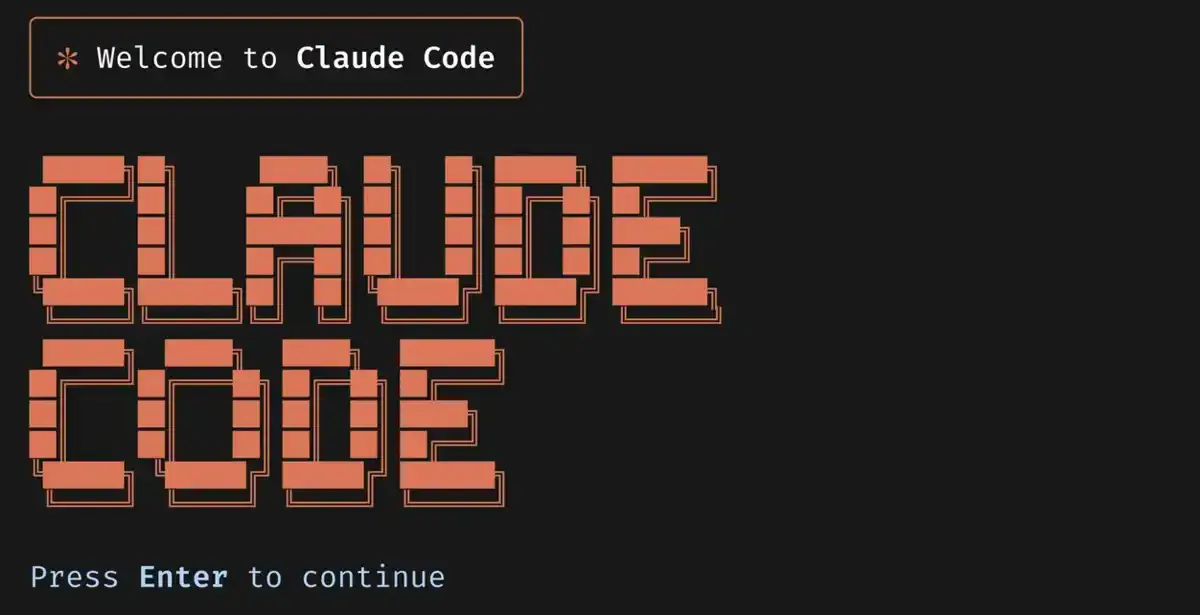💡 TL;DR - The 30 Seconds Version
🎯 Anthropic restricted Windsurf's access to Claude models while pricing Claude Code at $20/month to force developers toward its terminal-based coding tool.
📊 Claude Code users report 2x to 10x productivity gains, with Claude Opus 4 working autonomously for seven hours compared to competitors' 1-2 hour limits.
🏭 GitHub chose Claude Sonnet 4 to power its new coding agent, validating Anthropic's model performance over OpenAI and Google alternatives.
⚡ The tool runs in terminals and integrates with any IDE, avoiding the browser limitations that plague competitors like Cursor and Windsurf.
🌍 At $6 daily cost per developer versus $150,000+ annual salaries, engineering leaders see clear ROI for teams automating routine coding tasks.
🚀 Anthropic's SDK approach lets developers build custom agents, positioning Claude Code as infrastructure rather than just another coding assistant.
Coding agents have moved beyond simple autocomplete. They now write entire applications, debug complex problems, and manage codebases with minimal human oversight. This shift represents the biggest change in software development since version control systems.
AI coding tools have evolved past simple autocomplete. They're now autonomous agents that write entire applications, debug complex issues, and handle entire development workflows. This shift marks the biggest change in software development since version control.
Anthropic's Claude Code sits at the center of this transformation. Unlike browser-based tools like Cursor or Windsurf, Claude Code lives in your terminal. This placement gives it a unique strategic advantage in the fight for developer mindshare.
The coding agent market has become a battlefield. GitHub Copilot dominates with millions of users. Cursor raised hundreds of millions and grew to 60,000 paying subscribers. Google's Jules tackles bugs and feature requests with GitHub integration. Now Anthropic is betting that terminal-native tools will win.
The Terminal Advantage
Claude Code runs directly in your terminal and works alongside your preferred IDE and development tools without requiring you to change your workflow. This approach differs from competitors who built custom IDEs or browser interfaces.

The terminal strategy makes sense. Developers already live in terminals. They run git commands, execute tests, and manage deployments there. Claude Code offers raw access to the model, making it ideal for power users who need to automate large-scale tasks, such as fixing thousands of lint violations or generating PRs across a codebase.
Performance metrics reveal substantial improvements in practical usage, with Sonnet 4 achieving an 80.0% Valid Tool-Call Rate (up from 25.0%) while Within-Limit Edit Rate increased from 21.4% to 64.3%. These numbers matter when developers need reliable automation.
How It Works
Claude Code integrates into development workflows through simple commands. Navigate to your project directory and run claude. The tool understands your codebase, reads documentation, and executes commands.
Claude Code is intentionally low-level and unopinionated, providing close to raw model access without forcing specific workflows. Developers can customize it through CLAUDE.md files that define coding standards, common commands, and project-specific rules.
The tool handles everything from bug fixes to feature implementation. Claude Code can also use command line tools (like git) and MCP servers (like GitHub) to extend its own capabilities using your tools. This extensibility sets it apart from closed systems.
Performance That Matters
Developers report 2x to 10x productivity gains, depending on their workflows. For instance, engineers can ship small features in minutes or fix bugs reported in Slack channels almost instantly. These aren't marginal improvements.
Claude Opus 4 demonstrates exceptional performance sustainability during extended operations. Field testing confirms Claude Opus 4 successfully executed a seven-hour open-source code refactor for Rakuten while maintaining performance integrity and accuracy. Previous models degraded after one to two hours.
GitHub says Claude Sonnet 4 soars in agentic scenarios and will introduce it as the model powering the new coding agent in GitHub Copilot. This endorsement validates Anthropic's approach.
Strategic Positioning
Anthropic's positioning becomes clearer when you consider recent moves. Anthropic's decision to limit Windsurf's access to Claude models has sparked widespread interest in the AI-assisted coding community. This forced competitors to find alternative models while directing users toward Claude Code.
Claude Code is included in your Pro plan. Perfect for short coding sprints in smaller codebases with Claude Sonnet 4. At $20 monthly, this undercuts standalone coding tools that charge $20-30 for basic features.
At an average cost of $6 per day per active user, it's a small price compared to engineer salaries. For engineering leaders, the ROI calculation is straightforward.
Beyond IDEs
While competitors focused on building better IDEs, Anthropic built infrastructure. We're releasing an extensible Claude Code SDK, so you can build your own agents and applications using the same core agent as Claude Code. This platform approach could prove decisive.
The SDK is designed to address a common limitation of AI-assisted coding: the lack of context and integration. Developers can now run Claude as a subprocess, use it in GitHub Actions, or call it in scripts.
Surprisingly, Claude Code isn't just for coders. Non-technical users, like designers and finance professionals, have adopted it for tasks like generating UI prototypes or querying CSVs. This expands the addressable market beyond traditional developers.
The Competition Responds
Cursor, another AI coding tool, offers a web-based interface and direct access to Claude 4 models—something Windsurf struggled with after Anthropic's restrictions. But browser-based tools face inherent limitations in system integration.
The market is moving toward agents that can handle end-to-end workflows. Claude Code's ability to automate unit test writing, linting, and PR generation reduces cycle times and enables teams to tackle features they might otherwise defer. This positions it well for the next phase of AI-assisted development.
Looking Forward
In May 2025, Anthropic hosted its first "Code with Claude" developer conference, signaling its commitment to the coding community. The company is building an ecosystem, not just a tool.
GitHub's selection of Sonnet 4 as the foundation for their new coding agent validates the evidence-based performance advantages of Claude's architecture. This partnership could accelerate adoption across the developer ecosystem.
The terminal-first approach may seem old-fashioned, but it reflects a deeper understanding of how developers work. While others built flashy interfaces, Anthropic built a foundation that integrates with existing workflows.
Why this matters:
- Claude Code's terminal-native approach sidesteps the IDE wars by working with any development setup, potentially capturing users regardless of their editor preferences.
- By controlling model access and pricing aggressively, Anthropic is forcing competitors to compete on features rather than relying on Claude's superior coding performance.
❓ Frequently Asked Questions
Q: How much does Claude Code actually cost per month?
A: Claude Code comes with Claude Pro at $20/month or Claude Max at $100-200/month. Daily usage costs average $6 per active developer. Failed sessions can still incur charges—one user reported a $5.30 charge for an incomplete session.
Q: Can Claude Code work with my existing IDE like VS Code or IntelliJ?
A: Yes. Claude Code runs in your terminal and integrates with any IDE. New beta extensions for VS Code and JetBrains show Claude's proposed edits directly in your files. Just run Claude Code in your IDE's terminal to install.
Q: What's the difference between Claude Code and GitHub Copilot?
A: Copilot focuses on code completion within IDEs. Claude Code handles entire workflows—reading files, running commands, making commits, and creating pull requests. It works autonomously for hours rather than suggesting single lines of code.
Q: Does Claude Code store or train on my private code?
A: No. Anthropic stores user feedback for only 30 days and doesn't train models on Claude Code feedback. The tool runs locally and asks permission before file changes. However, conversation data is logged temporarily for debugging.
Q: Why did Anthropic restrict Windsurf's access to Claude models?
A: Anthropic limited third-party access to push users toward Claude Code. This forced Windsurf users to switch tools or use inferior models, directing traffic to Anthropic's own coding assistant and increasing Claude Code adoption.
Q: How long can Claude Code work without supervision?
A: Claude Opus 4 worked autonomously for seven hours on a Rakuten refactor without performance degradation. Previous models typically lasted 1-2 hours before error rates became problematic. Developers can use "safe YOLO mode" for hands-off operation.
Q: What programming languages and frameworks does Claude Code support?
A: Claude Code works with any language or framework since it operates through your terminal and existing tools. It includes TypeScript and Python SDKs, supports Docker containers, and integrates with git, npm, pip, and other command-line tools.
Q: Can non-programmers use Claude Code for other tasks?
A: Yes. Designers use it for UI prototypes, finance teams query CSVs, and researchers analyze data in Jupyter notebooks. The tool handles any task involving files, data processing, or automation—not just traditional programming.















